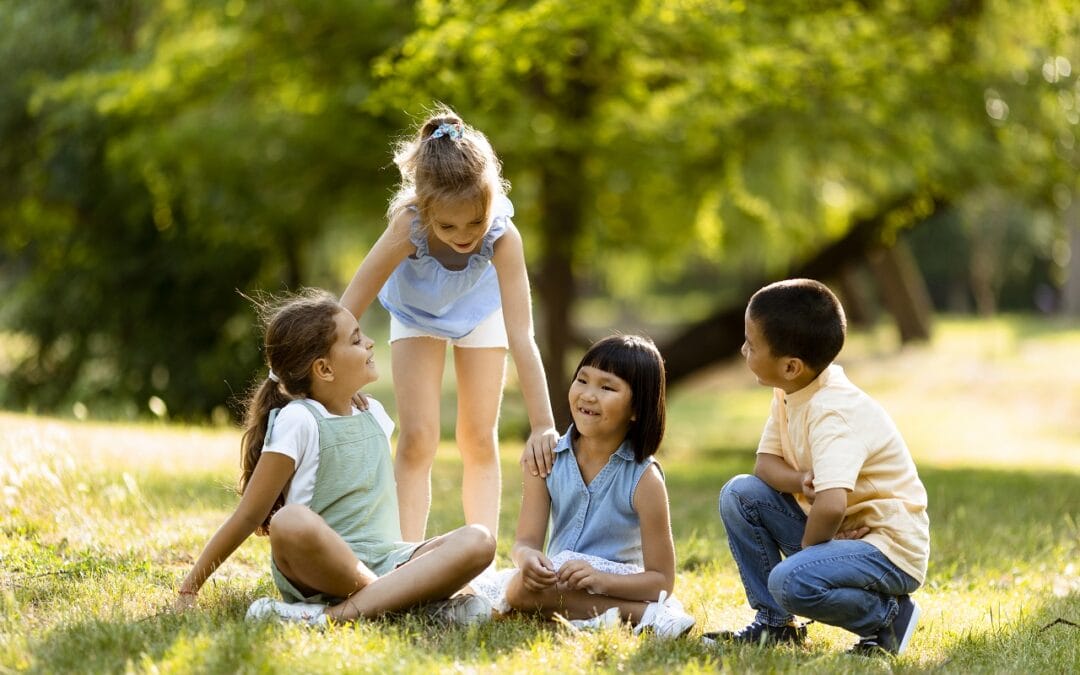In today’s fast-paced and ever-evolving world, the development of strong social skills from an early age is more crucial than ever for children. As part of our commitment to foster comprehensive growth in children, we have integrated peer socialization groups into our suite of services. These groups are designed not just to enhance children’s social interactions but also to support an array of developmental milestones through the power of structured social play and communication.
Peer socialization groups offer a dynamic environment where children can learn from each other under the guidance of skilled professionals. These settings allow participants to explore interpersonal communication, understand social cues, and develop lasting relationships with peers in a safe and nurturing environment.
At our studio, we believe in using evidence-based practices to facilitate not only learning and development but also the joy and spontaneity of childhood interactions. Through these groups, we aim to equip children with the necessary tools to navigate social landscapes effectively, building a foundation for healthier social interactions as they grow.
Understanding the Role of Peer Socialization Groups in Social Skills Development
Peer socialization groups are essential components of social skills development, serving as a structured environment where children can learn and sharpen their interpersonal skills through interactive activities. In these groups, facilitated by trained professionals, children are encouraged to engage with their peers in tasks and play that mimic real-world social situations. This exposure is crucial for them because it provides them with the opportunity to practice new skills in a safe, nurturing environment where mistakes are just a part of learning, not failures.
Our peer socialization groups use a variety of scenario-based interactions to help children understand the nuances of social cues, turn-taking, sharing, and cooperative problem-solving. Through these activities, children learn not just how to speak to others, but how to listen, interpret, and respond appropriately, which are vital components of effective communication. These skills, once honed, allow children to navigate more complex social environments as they grow older, ensuring that they develop confidence in their social interactions.
Key Benefits of Peer Socialization for Children
Participating in peer socialization groups offers a multitude of benefits for children, especially those who may struggle with social interactions due to various developmental challenges. First and foremost, these groups enhance a child’s ability to communicate effectively with others. Regular interaction with peers teaches children the practical application of language skills and helps them to understand and manage their emotions and reactions in socially expected ways.
Moreover, peer groups work to build confidence and reduce social anxiety. Children who are frequently exposed to social situations in a controlled, supportive setting are more likely to feel comfortable and less stressed in unexpected social gatherings. Over time, these positive interactions contribute to a healthier self-image and greater resilience against social challenges. Additionally, these social skills and confidence directly contribute to academic success and can improve family dynamics, as children are better equipped to express their needs and concerns.
Strategies and Activities Used in Our Peer Socialization Groups
At our center, we incorporate a variety of strategies and activities designed specifically to address the social needs of children at various developmental stages. We utilize role-playing exercises that simulate real-life interactions, allowing children to practice greeting others, holding conversations, and expressing themselves in socially appropriate ways. This method helps the kids to visualize and understand social scenarios they will likely encounter, making them feel more prepared and less anxious. Additionally, we use group projects to encourage teamwork and teach the importance of collaboration and respect for others’ ideas and space.
We also invest in game-based learning, which includes board games and interactive group games. These games are not only fun but also serve as a tool for children to learn turn-taking, rule-following, and sportsmanship. Engaging in these playful yet structured activities helps children to bond with their peers and learn the subtle cues of interaction like facial expressions and body language, which are critical components of communication that extend beyond mere words.
How to Determine if Your Child Could Benefit from Peer Socialization Groups
Recognizing the signs that suggest your child might benefit from joining a peer socialization group can greatly assist in their social development. If you notice that your child appears anxious or withdrawn in social settings, struggles to make friends, or frequently misunderstands social cues, these might be indications that your child could benefit from structured social support. Similarly, children who have trouble sharing, taking turns, or who display frustration during interactive play may also be excellent candidates for these groups.
It’s also important to listen to feedback from teachers or other caregivers who interact with your child in social settings. They can provide valuable insights into how your child interacts with peers and whether they could benefit from more targeted social skills training. If these signs resonate with your child’s experiences, consider reaching out to our team to learn more about how our peer socialization groups can provide crucial support, helping your child to build confidence and develop necessary social skills.
Conclusion
By prioritizing the development of social skills through peer socialization groups, our approach not only enhances children’s current interactions but also lays the groundwork for healthier social relationships in the future. Our tailored activities and strategies are designed to meet the unique needs of each child, fostering an environment where they can thrive and succeed in every aspect of their lives—socially, academically, and beyond.
Whether your child is just beginning to navigate social complexities or needs a bit more confidence in their interactions, Watch Me Shine is here to guide and support them every step of the way. Reach out to us today to see how our peer socialization groups can make a meaningful difference in your child’s social journey!

